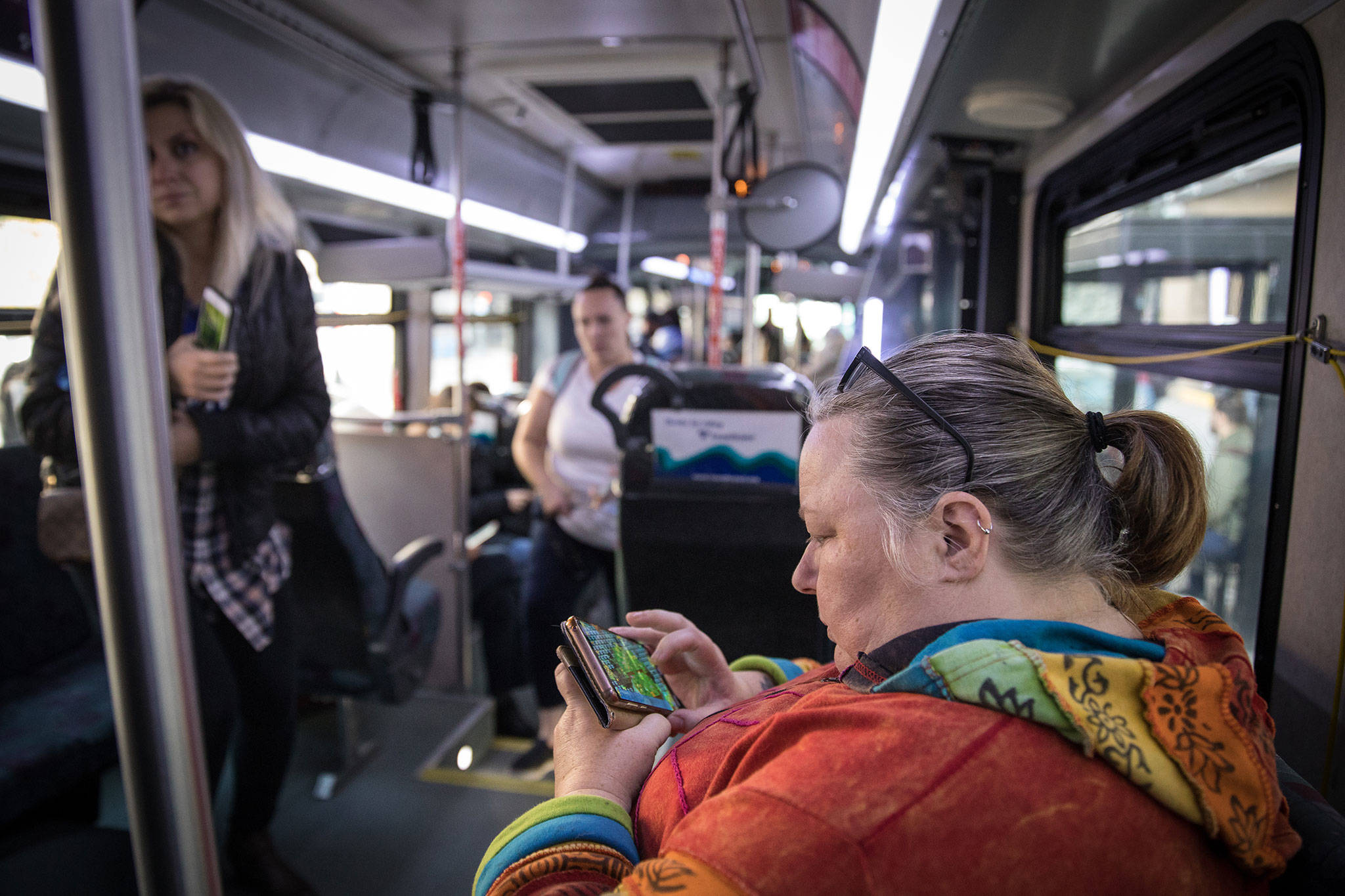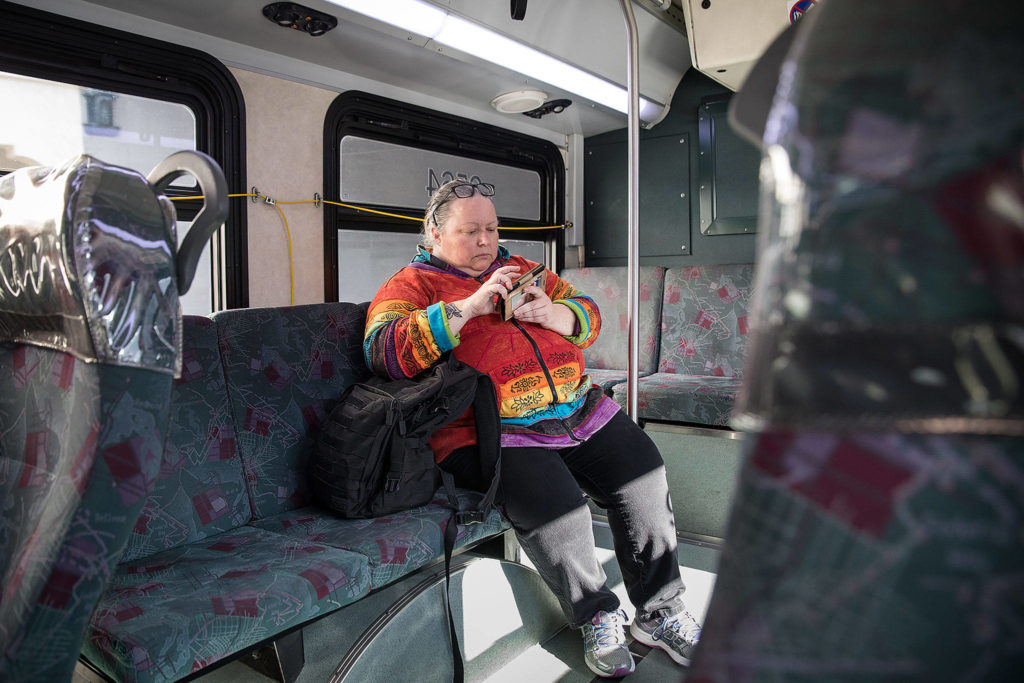Four days a week, Kerese Holmes joins the brake lights streaming in and out of Seattle.
The medical assistant leaves her house on the northeast side of Lake Stevens at 5:30 a.m. to be at her office at Seattle Children’s at 7 a.m. And on a good day — with no accidents or rainy weather to maneuver through — she’s lucky to make the drive home in less than two hours. She works a compressed schedule, getting in her 40 hours over four days, which gives her one more commute-free day a week.
Holmes is part of a not-so-lucky group of “super commuters” who spend 90 minutes or more traveling one way to work. Though these workers still make up a small minority of the workforce — 2.8% nationally and 3.7% in Snohomish County — long commutes are on the rise, according to ApartmentList.com.
Here at home, the number of super commuters jumped 44% between 2009 and 2017 as the workforce increased 13.8%.
For most in the county, the average commute is much shorter, a little over 30 minutes each way, according to Census data.
Jobs tend to be centered in large metro areas, like Seattle. Increasingly, those areas are becoming more expensive in the Puget Sound region. As a result, more people are being driven north and south from King County in search of more affordable options.
In King County the percentage of super commuters in the workforce is 2.2%, lower than in Snohomish County and much less than in Pierce County, where almost 5% of workers commute long hours to reach their jobs.
“I would like to live in Seattle, but there is no way I could afford it,” said Ken Levesque, of Arlington.
Levesque’s daily commute can last between three and four hours — or more on the worst days — depending on the traffic his bus gets caught up in. It takes Levesque 30 minutes to get to his Marysville bus stop by car and then the ride to and from downtown Seattle can take between an hour and an hour and 45 minutes.
The commute leaves him frustrated and with little time with his family.
“It’s wake up, get ready for work,” Levesque said. “And I get home as they are winding down and going to bed.”
He’d like to work closer to home, but there’s not a whole lot of options for an architectural project manager outside of larger cities, he said.
“Seattle is the only place that fits my skill set,” Levesque said.
Commuters who use public transit, like Levesque, are six times more likely to be super commuters than those who drive to work, according to ApartmentList.
Timing is everything for transit rider and super commuter Tamara Burks.
If she left too late from her downtown Everett home she would miss the once-an-hour company shuttle to her job on Harbor Island in south Seattle. So she often had a 40 minute wait for the company shuttle in downtown Seattle.
Burks passes the time on the buses playing games and sleeping. She’s looked for work in Snohomish County.
“But there’s more jobs in Seattle, and the pay is a little better,” Burks said.
She and her husband chose Everett for its affordability. They recently moved near the Lynnwood Transit Center to shave off time from her commute after finding an apartment within their budget. Being there gives her more bus options, she said.
That area has hundreds of new apartment units opening and in the works near the transit hub, as the Lynnwood Link light rail extension inches into Snohomish County.
That 14-mile move south has greatly reduced her commute time, Burks said, but timing is still essential.
“If the bus gets stuck in traffic in the morning, it could mean waiting up to an hour for the shuttle,” Burks said.
Got a question? Email me at streetsmarts@heraldnet.com or call 425-374-4165. Include your name and city of residence. Got an interesting commute or one that involves three modes of transportation? Street Smarts wants to hear about it.
Talk to us
> Give us your news tips.
> Send us a letter to the editor.
> More Herald contact information.


























